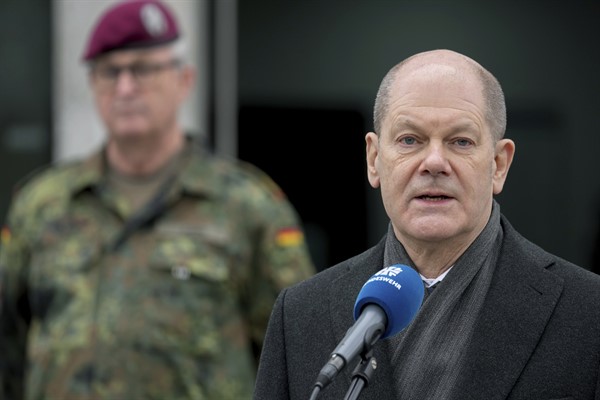Last week, Germany’s lower legislative chamber, the Bundestag, held a historic vote to amend the country’s constitution to allow for a massive expansion of its military forces. The vote tally—567 to 96, with 20 abstentions—was one more sign that when Russian President Vladimir Putin invaded Ukraine, he upended not only the architecture of global security, but also, in some cases, fundamental, long-established beliefs about national defense.
In the case of Germany, one of the most significant effects of Russian aggression has been the blow it dealt to the notion of pacifism that has guided the country’s defense policies since World War II. And Germany is not the only country reconsidering its approach to defense; many are now tossing aside long-standing preferences for protecting themselves by not taking sides in conflicts.
The German amendment, which still requires upper-house approval, would allow the creation of a 100-billion-euro fund for boosting military strength. The idea was initially proposed by German Chancellor Olaf Scholz, who on Feb. 27—three days after Russian tanks rolled into Ukraine—stood before the Bundestag and lambasted Putin in a speech that brought an end to Germany’s hyper-restrained stance on armed conflict.

